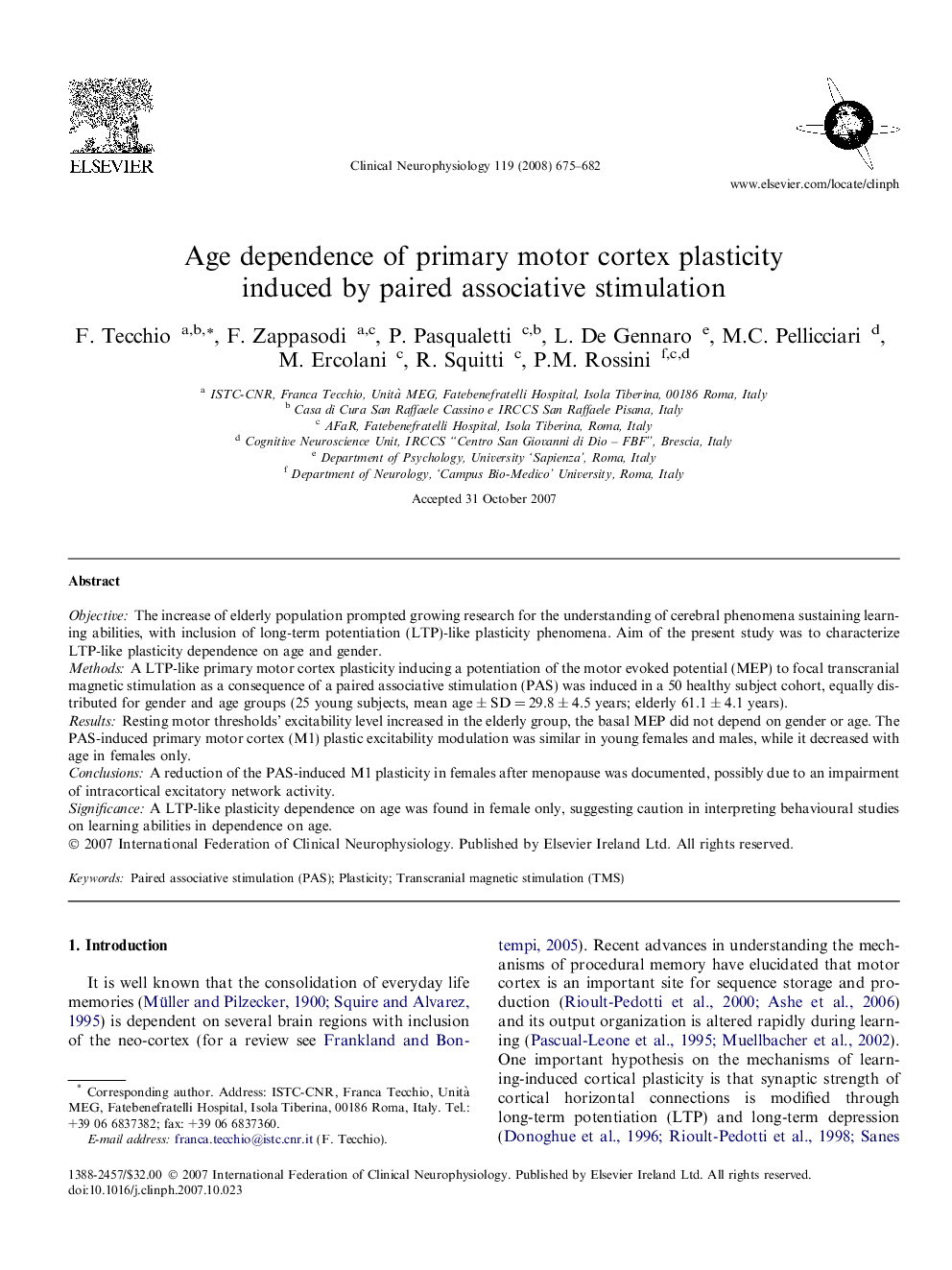| Article ID | Journal | Published Year | Pages | File Type |
|---|---|---|---|---|
| 3046602 | Clinical Neurophysiology | 2008 | 8 Pages |
ObjectiveThe increase of elderly population prompted growing research for the understanding of cerebral phenomena sustaining learning abilities, with inclusion of long-term potentiation (LTP)-like plasticity phenomena. Aim of the present study was to characterize LTP-like plasticity dependence on age and gender.MethodsA LTP-like primary motor cortex plasticity inducing a potentiation of the motor evoked potential (MEP) to focal transcranial magnetic stimulation as a consequence of a paired associative stimulation (PAS) was induced in a 50 healthy subject cohort, equally distributed for gender and age groups (25 young subjects, mean age ± SD = 29.8 ± 4.5 years; elderly 61.1 ± 4.1 years).ResultsResting motor thresholds’ excitability level increased in the elderly group, the basal MEP did not depend on gender or age. The PAS-induced primary motor cortex (M1) plastic excitability modulation was similar in young females and males, while it decreased with age in females only.ConclusionsA reduction of the PAS-induced M1 plasticity in females after menopause was documented, possibly due to an impairment of intracortical excitatory network activity.SignificanceA LTP-like plasticity dependence on age was found in female only, suggesting caution in interpreting behavioural studies on learning abilities in dependence on age.
